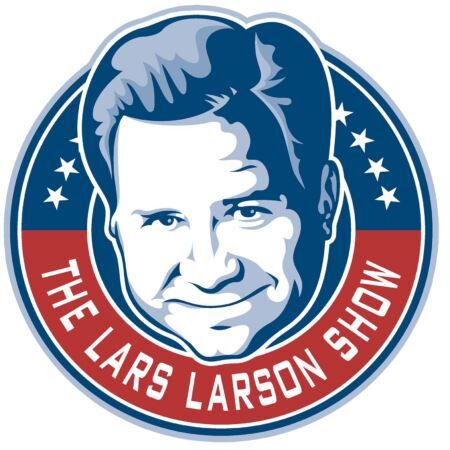Supreme Court seems skeptical about state bans on 'conversion therapy' for LGBTQ+ kids
News > Politics & Government News

Audio By Carbonatix
12:09 AM on Tuesday, October 7
By LINDSAY WHITEHURST
WASHINGTON (AP) — A majority of Supreme Court justices on Tuesday seemed likely to side with a Christian counselor challenging bans on LGBTQ+ “conversion therapy” for kids as a violation of her First Amendment rights.
Kaley Chiles, with support from President Donald Trump’s administration, argues the laws passed by about half of U.S. states wrongly bar her from offering voluntary, faith-based therapy for kids.
She's challenging the law in Colorado. The state says its measure simply regulates licensed therapists by barring a practice that’s been scientifically discredited and linked to serious harm.
But the court's conservative majority didn't seem convinced that states can restrict talk therapy aimed at changing feelings or behavior while allowing counseling that affirms kids identifying as gay or transgender. Justice Samuel Alito said the law “looks like blatant viewpoint discrimination.”
The case blends two trends in the recent decisions of a court that's backed several claims of religious discrimination and taken a more skeptical view in LGBTQ rights cases. The court is also expected to hear a case this term over which sports teams transgender athletes can join. A decision in Tuesday's case is expected by June.
Chiles contends her approach is different from the kind of conversion therapy once associated with practices like shock therapy decades ago. She said she believes “people flourish when they live consistently with God’s design, including their biological sex.”
Her attorneys argue the bans make it difficult for parents to find a therapist willing to work on gender identity unless the counseling specifically affirms transition.
“Ms. Chiles is being silenced, and the kids and families who want her help are unable to access it,” said attorney James Campbell. Violating the law carries potential fines of $5,000 and license suspension or even revocation.
The Republican administration argued the Colorado law suppresses therapists’ speech, and should be subject to the higher legal standard of strict scrutiny, one that few measures pass.
Justice Ketanji Brown Jackson questioned why the Colorado law should be struck down, while the court upheld a different measure from Tennessee that bans transition-related treatments for transgender kids.
“I’m just, from a very, very broad perspective, concerned about making sure that we have equivalence with respect to these things,” she said. The Justice Department counters that Tennessee's law is different because it involves medical treatments rather than conversations between a patient and their therapist.
Families who have spoken in favor of restrictions include Linda Robertson, a Christian mom of four from Washington state whose son Ryan underwent therapy that promised to change his sexual orientation after he came out to her at age 12. The techniques led him to blame himself when it didn’t work, leaving him ashamed and depressed, she said. He died in 2009, after multiple suicide attempts and a drug overdose at age 20.
“What happened in conversion therapy, it devastated Ryan’s bond with me and my husband,” she said. “And it absolutely destroyed his confidence he could ever be loved or accepted by God.”
Colorado argues its law does allow for wide-ranging faith-based conversations, and it exempts religious ministries. No one has been sanctioned under the 2019 law.
State attorneys say that therapy is health care, and that Colorado has a responsibility to regulate it.
“Providers have a duty to act in their patients’ best interest and according to their professional standards. The First Amendment affords no exception,” Colorado Solicitor General Shannon Stevenson said.
Justice Neil Gorsuch, though, questioned whether the same argument could have been used to restrict pro-LGBTQ therapy in previous decades, when the mainstream medical view was different. “What if a state back then might have passed a law prohibiting talk therapy that affirmed homosexuality?”
Justice Amy Coney Barrett suggested strict scrutiny might apply, but malpractice suits could address claims of harm linked to the practice.
Chiles is represented by Alliance Defending Freedom, a conservative legal organization that has appeared frequently at the court in recent years. The group also represented a Christian website designer who doesn’t want to work with same-sex couples and successfully challenged a Colorado anti-discrimination law in 2023.
ADF's argument in the conversion therapy case also builds on another victory from a 2018 Supreme Court decision, which found that California could not force state-licensed anti-abortion crisis pregnancy centers to provide information about abortion. Chiles should also be free from that kind of state regulation, the group argued.
The high court agreed to hear the case after the 10th U.S. Circuit Court of Appeals in Denver upheld the law. Another Atlanta-based appeals court, the 11th U.S. Circuit Court of Appeals, has struck down similar bans in Florida.
Legal wrangling has continued elsewhere as well. In Wisconsin, the state's highest court recently cleared the way for the state to enforce its ban. Virginia officials, by contrast, have agreed to scale back the enforcement of its law as part of an agreement with a faith-based conservative group that sued.
___
Follow the AP's coverage of the U.S. Supreme Court at https://apnews.com/hub/us-supreme-court.








